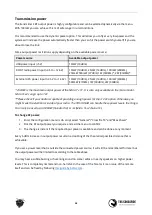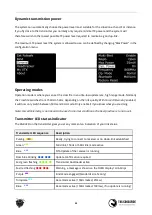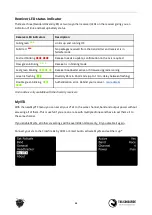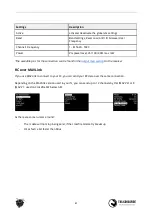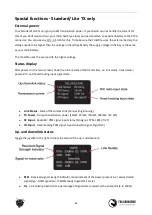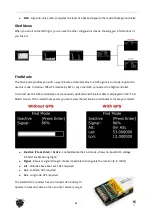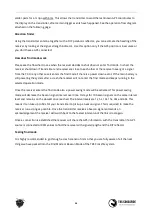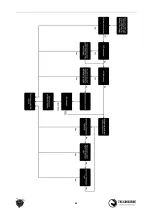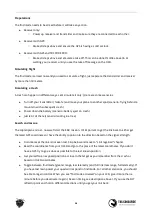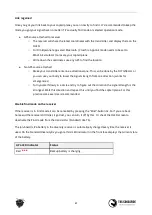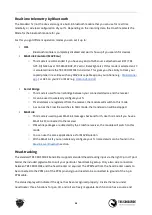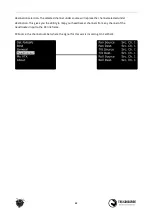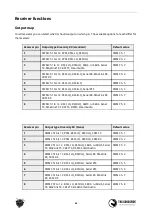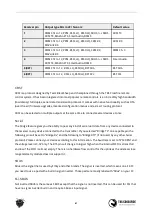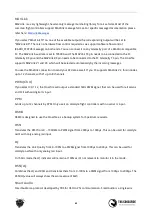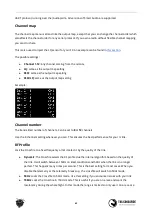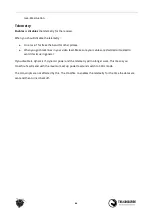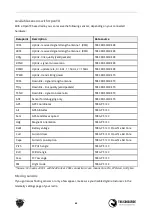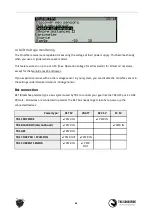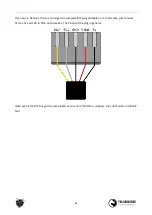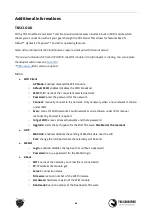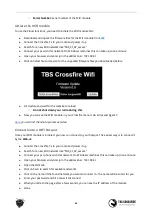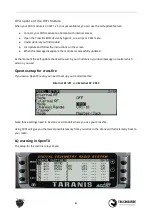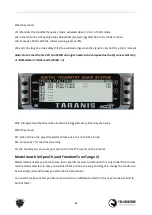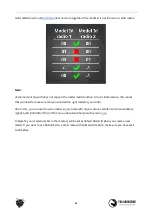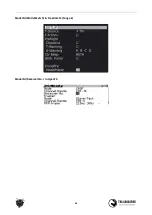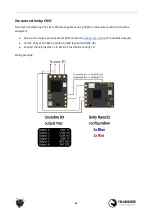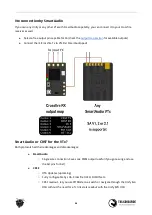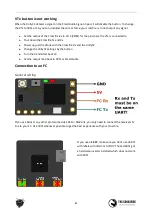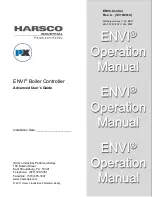
MAVLink
MAVLink is a very lightweight, header-only message marshalling library for air vehicles. Most of the
common flight controllers support MAVLink message format. For specific message documentation please
If you select “MAVLink TX” on one of the available outputs the corresponding output will be set to
“MAVLink RX”. There is no hardware flow control required as we support software flow control
(RADIO_STATUS message) on both ends. You can connect it to any telemetry port of a MAVLink compatible
FC. The MAVLink baud rate is set to 57600 baud. The MAVLink TX pin needs to be connected to the FC
telemetry RX pin and the MAVLink RX pin needs to be connected to the FC telemetry TX pin. The Crossfire
supports MAVLink V1 and V2, which will be selected automatically by the incoming messages.
You use the MAVLink connection to send your RC data as well. If you FC supports MAVLink V2, this includes
up to 12 channels, with V1 up to 8 channels.
PWM (Ch X)
If you select CH 1-12, the Crossfire will output a standard 50Hz PWM signal, that can be used for all servos
and FC’s without digital rc input.
PPM
Sends up to 12 channels by PPM. Only use it on old-style flight controllers with no serial rc input.
DSMX
DSMX is designed to use the Crossfire as a backup system for Spektrum receivers.
RSSI
Translates the RSSI from 0 - -130dBm to PWM signal from 2000µs to 1000µs. This can be used for old-style
osd’s with only analog rssi input
LQ
Translates the Link Quality from 0 -100% to a PWM signal from 1000µs to 2000µs. This can be used for
old-style osd’s with only analog rssi input.
In 150Hz mode the LQ indicator will remain at 100% as it’s not relevant to monitor it in the mode.
RSSI/LQ
Combines the LQ and RSSI and translates them from 0 -100% to a PWM signal from 1000µs to 2000µs. The
RSSI/LQ value will always show the worse value of both
Smart Audio
SmartAudio is a protocol developed by TBS for OSD to VTx communication. SmartAudio is a single-wire
42

